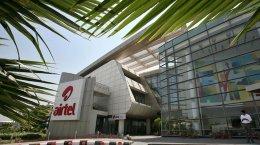The biggest extravaganza in India's e-commerce sector is underway, and the contestants are pulling out all stops to maximise their sales volumes by offering steep discounts, cash backs, and what have you.
While the fight for the top slot is between homegrown e-tailer Flipkart and rival Amazon India, Alibaba-backed Paytm Mall and ShopClues are likely to battle it out for the bronze. Amid the festivities, however, online retailer Snapdeal, which recently scrapped a proposed merger with Flipkart after months of negotiations, seems a misfit.
Mrigank Gutgutia, engagement manager at research firm Redseer Consulting, is certain the Kunal Bahl-led firm will be biggest loser this season. "They are going to lose the biggest amount of market share," he says.
To be sure, this hasn't exactly been a stellar year for the troubled e-tailer, what with the merger with Flipkart coming a cropper and massive layoffs. However, even after the company decided to go independent as a marketplace, it hasn't really made its positioning clear. And that could see it lose significant market share to Paytm Mall.
"Snapdeal said they will focus on small cities and unbranded products, but that's something ShopClues is already doing. There is no clear value-proposition... Last year, their Rs 200 crore 'Unbox Zindagi' campaign brought in a fresh look and a whole set of offers across categories. Despite being caught between Amazon and Flipkart, Snapdeal managed to do reasonably well in terms of sales," he recounts.
Media reports have said, citing a company executive, that Snapdeal has earmarked Rs 40-60 crore for the festive season, much less than what its competitors are pumping in.
"They still have some brand recall... But I am not sure if they will get anywhere close to what they did last year in terms of sales," Gutgutia explains.
And Snapdeal's loss could be Paytm Mall's gain.
Armed with a new version of its mobile app featuring 1,000 brand stores and 15,000 brand-authorised retailers, it has already announced a Rs 100-crore advertising budget. In fact, Paytm Mall's transition will probably be the story of the season. Given it's bottomless war chest and Alibaba's backing, it might spring surprises in subsequent sale events as well.
"Paytm Mall's first-ever [festive season] sale will boost their market share. After demonetisation, Paytm has become a decent brand in the country... They are going to be the biggest gainer in terms of market share this season," Gutgutia says.
If the initial response to its 'Mera Cashback Sale' is anything to go by, the company is set to see a surge in transactions. On the first day of the sale event, the company claims, customers across 750 cities and towns placed orders with sellers across 130 cities. "Apple iPhones, Samsung smartphones, Macbooks, Lenovo and HP laptops, home appliances like refrigerators, washing machines and kitchen appliances, and daily needs products... emerged as the best selling categories," the company said.
Based on the first day's response, Paytm Mall is targeting $0.5 billion in festive season sales. However, it didn't disclose specific numbers for day one.
Paytm Mall's rival ShopClues is also expected to gain some market share. "It has good brand recall amongst Tier 2 people. With Reliance Jio bringing in new shoppers, it would give a further boost to the company's sales," Gutgutia said.
Shopclues' day one report on its 'Maha Bharat Diwali Sale' said, "The website, which has more than 72 million monthly visits, saw total traffic double... post announcement of sales. Total conversions went up by 50% whereas total time spent on the website went up by 30%." Fashion emerged as the top choice, closely followed by home and kitchen, and electronics categories.
ShopClues, which focuses on unbranded products to target the lower end of the consumer base, had said it would offer a flat 50-80% discount on a wide range of products.
As for the numero uno slot, it's going to be a toss-up between Amazon and Flipkart, as expected. "We are not sure who is going to win or lose, but both will either retain their market share or grow it. Amazon is strong in fast-moving consumer goods while Flipkart is stronger in smaller cities. Amazon's Prime offering for urban consumers, however, has a very strong pull," Gutgutia says.
Steep rise in GMV
Redseer Consulting estimates that the gross merchandise volume (GMV) this time around will be $1.7 billion (about Rs 10,000 crore) over 4-5 days, a 40-60% jump over last year's $1.05 billion. "We are basing this on two facts. One, we expect growth in the number of unique shoppers... Partly due to Reliance Jio, we are going to see 40-50% growth in the number of active users...That's going to be a big driver," Gutgutia says.
"Second, we see some growth in the average selling price as well," he adds.
The e-commerce consultancy expects about 40 million units to be sold across categories, over five days. In terms of volume, fashion will account for more than 30% of total volumes. In terms of GMV, electronics, especially mobile phones, will dominate, accounting for more than 60% of the GMV. A lot of niche categories, including home and kitchen, are also likely to see traction with new shoppers coming in.
Post-war alliances?
After the dust settles, the contestants might take a long, hard look at their segment-wise performance. That could translate into some merger and acquisition possibilities.
"There are a lot of smaller players where there are M&A possibilities. Big horizontal players like Flipkart and Amazon might look at vertical e-tailers to strengthen a particular segment. Grocery and furniture might be the next big categories, since that is where you can earn fat margins and higher revenues," Gutgutia says.
However, the possibility of mergers and acquisitions among horizontal players looks remote. "It's possible only if a common investor pushes the case, but that is somewhat unlikely," he concludes.






